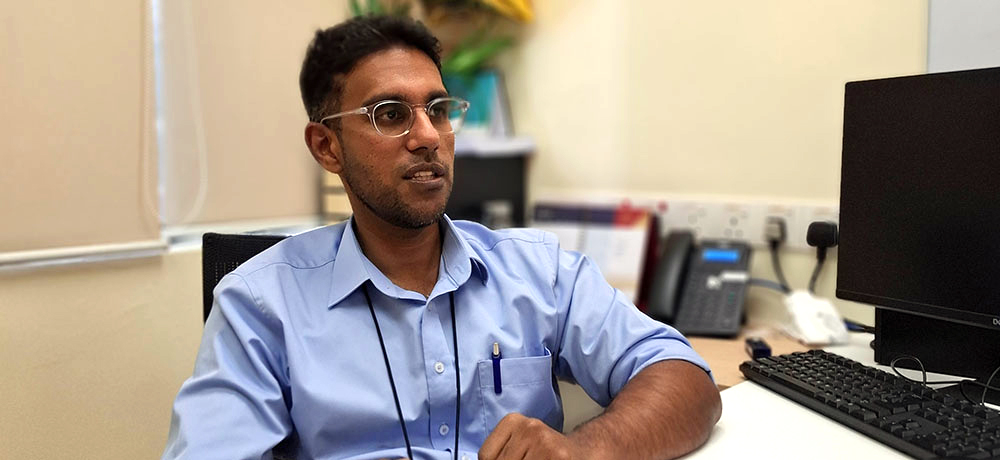Debunking Lung Cancer Myths with Respiratory Specialist, Dr Syed Ajmal
27 November 2024

Lung cancer is the leading cause of cancer-related deaths in Malaysia.
A major contributing factor to this is because it is often detected too late, which results in missed treatment opportunities, as treatment is less likely to be effective in its advanced stages. In Malaysia, 90% of lung cancer cases are diagnosed at a late stage (stage 3 or stage 4 lung cancer).
Adding to the challenge are the many widespread misconceptions surrounding this deadly disease, which prevents individuals from getting the timely screenings, diagnoses or treatments for lung cancer that could potentially save their lives.
In conjunction with Lung Cancer Awareness Month, Dr Syed Ajmal, our Consultant Physician, Respiratory Physician and Interventional Pulmonologist, shares his expert insights and also clarifies some of the most common misconceptions and concerns about lung cancer.
What Is Lung Cancer?
Lung cancer occurs when abnormal cells grow uncontrollably and form tumours in the lungs. The two main types of lung cancer are small cell lung cancer and non-small cell lung cancer.
Small cell lung cancer is the most aggressive type of lung cancer, often spreading very quickly and usually discovered when it has already spread to other parts of the body. This form is often caused by smoking.
Non-small cell lung cancer is the most common form of lung cancer, with about 80 to 85 percent of all lung cancers belonging to this type. It is the less aggressive type of cancer, spreading more slowly than small cell lung cancer.
Myth 1: I Will Know If I Have Early Stage Lung Cancer.
This is a myth. According to Dr Syed Ajmal, by the time lung cancer presents with symptoms, it is often at a more advanced stage. Most cases are asymptomatic in the early stages.
“Often, it (lung cancer) is usually diagnosed when it is at its later stages, when symptoms arise either as a direct effect of the cancer or because its spread to other parts of the body,” the lung specialist said.
He notes that more often than not, lung cancer is detected incidentally when patients have scans for other reasons.Common symptoms like breathlessness are often dismissed as a normal part of ageing.
“When lung cancer starts to spread elsewhere, such as the bones, they start to develop symptoms like pain, which prompts them to come to the hospital,” he adds.

Myth 2: Lung Cancer Symptoms Will Usually Only Come in The Form of a Persistent Cough.
This depends. The respiratory specialist shares that signs and symptoms of lung cancer may also vary depending on the location of the cancer:
- If cancer is near the airway, symptoms may include cough and haemoptysis (coughing up blood)
- If cancer blocks the airway or affects a significant portion of your lungs, you may get breathless
- If fluid builds up around the lungs (pleural effusion), it can also contribute to breathing difficulties.
Myth 3: Non-Smokers Do Not Get Lung Cancer; Only Smokers Do.
This is incorrect. Both groups are still at risk regardless of whether they smoke or not. In fact, Dr Syed Ajmal highlights that there has been an increase of lung cancer rates in the non-smokers and never smokers in the Asia region, especially in women who’ve never smoked.
“In Malaysia, less than 2% of women smoke, but yet we’ve been seeing an increase in lung cancer diagnosed among women, in which 60% of lung cancers are diagnosed in never-smokers,” he says.
One of the theories behind this is a link to differences in hormonal and immune response in men and women.
He adds that an individual’s chronic exposure to air pollution like fine particulate matter (PM 2.5) can activate dormant cancer-causing genes, like the mutation of EGFR (epidermal growth factor receptor)—a protein involved in the growth and division of healthy cells.
"The rate of EGFR mutation in Asia is about 40 to 55 percent, and it’s a lot higher than the West which is only 15 to 25 percent, which indicates that there is a strong genetic component to lung cancer in Asia,” he adds.
Myth 4: There Is No Way to Screen For Lung Cancer, Especially in Its Early Stages.
This is not true. The gold standard for lung cancer screening, Dr Syed Ajmal mentions, will always be a low-dose computed tomography (LDCT) scan.
“This allows us to detect lung cancer in its early stages. Sometimes, very early cancers cannot be seen on normal X-rays,” Dr Syed Ajmal explains.
However, he adds that a chest X-ray is still a viable alternative, especially for those who are hesitant to undergo a LDCT scan or those without access to it.
Myth 5: The Radiation Emitted From an LDCT Screening Will Cause Lung Cancer.
This is not true. Dr Syed Ajmal emphasises that there is no strong evidence to link a LDCT scan to an increased risk of cancer. “The amount of radiation from a LDCT scan is small; less than the normal amount (you would) receive from the earth in a year,” he says.
Myth 6: Vape Is Better Than Smoking Cigarettes, As It Does Not Cause Lung Cancer.
Although vapes probably contain less harmful substances than the 7,000 chemicals found in traditional tobacco cigarettes, it still should not be considered safe. Dr Syed Ajmal warns that the long-term effects of inhaling heated vape additives remain uncertain.
“Vaping is relatively new—it took a few decades to link tobacco smoking to lung cancer. It may probably take a few decades to know the side effects of vaping as well,” he notes.
Additionally, research shows that young individuals who vape are more likely to go on to pick up smoking later on. This is a concern, given that rates of e-cigarette and vape use among young adults is now on the rise.
“This affects a whole new generation of people who would have never smoked but are now vaping instead, and in the future, probably smoking too,” Dr Syed Ajmal concludes.

Ultimately, lung cancer awareness starts with you. Knowing the right facts, understanding your risk and getting screened is crucial to catch lung cancer in its early stages.
Should you have concerns about your lung cancer risk, or need professional advice regarding lung cancer, schedule an appointment with our Consultant Physician, Respiratory Physician and Interventional Pulmonologist today: Make an appointment here
Back




